Have you ever wondered what makes your fragrance products truly captivating? The secret lies in its carefully chosen ingredients, which come together to create a strong match of scents.
With extensive experience in the fragrance making industry, I bring a wealth of knowledge about scent composition and the science behind what makes a fragrance appealing.
Here is a sneak peek into 2 of the fundamental ingredients found in perfumes:
In this guide, we will uncover the secrets behind the main components that define a fragrance’s character. From the elegance of essential oils to the timeless appeal of resins, you will gain a comprehensive understanding of what it takes to craft a scent that captivates and endures.
Read on and let’s get scented!
Essential oils are highly concentrated plant extracts that capture the essence, scent, and flavor of their source. They are pivotal in fragrance creation, offering not only distinct aromas but also emotional and therapeutic benefits. Below are the 3 main essential oils that play a foundational role in the world of perfumery:
Lavender oil extracted from the flowers of the lavandula angustifolia promotes a sense of relaxation and well-being. Lavender’s ability to blend well with various other essential oils and ingredients enhances the complexity of fragrances. For many, the mere mention of lavender call up a clear and calm ambiance. It’s a staple in aromatherapy and is widely used for its therapeutic benefits.
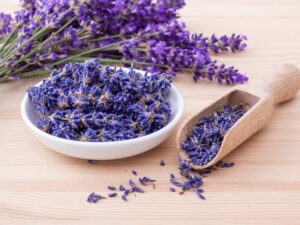
Rose oil is derived from the petals of rosa damascena which is prized for its intoxicating floral aroma. It is a symbol of luxury and sophistication in perfumery capturing the essence of romance and elegance. The process of extracting rose oil is labor-intensive it requires thousands of petals for a single ounce. Its profound scent has a deep emotional resonance, often used to elevate premium fragrances and skincare products.

Jasmine oil is obtained from the flowers of the jasminum officinale which offers an exotic and highly potent aroma. It is often referred to as the “King of Oils,” reflecting its status as one of the most precious ingredients in perfumery. Jasmine’s intense floral scent adds sensuality to fragrances, making it a favorite among perfumers for its ability to impart a rich and long-lasting character.
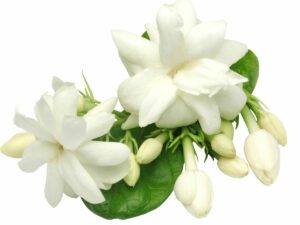
Absolutes are highly concentrated oils extracted through solvent extraction, offering more complex fragrances than essential oils. They capture the most delicate scents of flowers and plants and often used in high-end perfumery for their unparalleled intensity. Here are the 3 absolutes that are integral to crafting luxurious and captivating fragrances:
Rose absolute is obtained from the petals of roses through solvent extraction. This method ensures the capture of the full breadth of the flower’s fragrance resulting in an oil that is richer than its essential oil counterpart. Its intoxicating scent can transport one to a lush, blooming garden.

Jasmine absolute is celebrated for its intensely floral yet slightly fruity aroma. It is more concentrated and has a thicker consistency than jasmine essential oil, making it a prized ingredient in the perfume industry for its lasting power. This absolute plays an important role in Nako Cosmetic’s formulation adding a luxurious touch to fragrances aiming to captivate the senses with its rich scent.
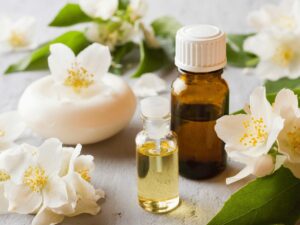
Orange blossom absolute is derived from the fragrant blossoms of the bitter orange tree, offering a fresh and floral aroma with citrusy undertones. This absolute captures more the essence of the orange blossom than the essential oil providing a richness that is unparalleled. It is a key ingredient in floral and citrus fragrances, imparting a bright and refreshing scent that excites the first days of spring.
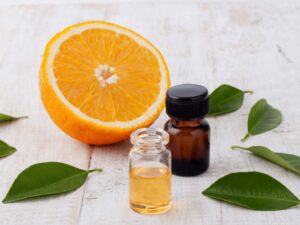
Resins are solid or semi-solid substances that exude from trees and plants, admired for their aromatic properties and preservation qualities. When used in perfumery, they offer warm and deep notes that serve as the foundation of many modern fragrances. Let’s explore the most common resins that have been valued for their distinctive scents and properties:
Frankincense is known for its balsamic and slightly spicy aroma. This resin is cherished in spiritual and ceremonial contexts which serves as an excellent stabilizer that enhances fragrance longevity. Notably, the frankincense extract market is projected to grow a CAGR of 8.44% from 2023 to 2030, according to Coherent Market Insights. This underscores its enduring appeal and growing significance in modern perfumery.
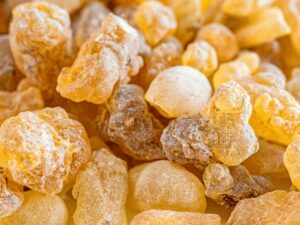
Myrrh offers a warm and earthy fragrance. It has a long history in medicinal, incense, and perfumery uses which is prized for its powerful and meditative scent. This ancient resin has fascinated cultures around the world for centuries. In perfumery, myrrh contributes a balsamic quality adding a touch of fascination to the base notes of a fragrance.
| Attribute | Description |
| Fragrance Profile | Myrrh offers a warm and earthy fragrance with balsamic undertones, characterized by its rich and meditative scent that adds depth and complexity to perfumes. |
| Historical Uses | Myrrh has a long history of use in medicinal, incense, and perfumery applications, dating back centuries, prized for its aromatic properties and therapeutic benefits. |
| Medicinal Benefits | Myrrh is valued for its potential medicinal properties, including anti-inflammatory, antiseptic, and analgesic effects, making it a common ingredient in traditional medicine practices. |
| Spiritual Significance | Myrrh holds spiritual significance in various cultures and religious practices, often used in ceremonies, rituals, and offerings for its sacred and purifying qualities. |
| Perfumery Usage | In perfumery, myrrh is used as a base note to add depth, warmth, and fascination to fragrance compositions, enhancing overall olfactory experiences with its unique aroma. |
Benzoin is a resin collected from the styrax tree which is characterized by its sweet and vanilla-like aroma. It is often used as a base note in perfumery to add a comforting warmth to fragrances. Benzoin acts as a fixative that enhances the longevity of other scents. Its almost caramel-like sweetness makes it a favorite in oriental and amber scent profiles.
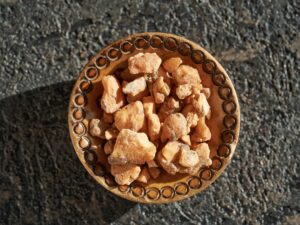
Citrus peels are vibrant and aromatic components used in perfumery to impart freshness and a zesty appeal to fragrances. Extracted through cold pressing or steam distillation, these oils capture the essence of the fruit’s skin, offering a burst of energetic scent that is uplifting and invigorating. Here are some citrus peels that play a crucial role in the creation of dynamic and refreshing perfumes:
Lemon peel oil is derived from the skin of the lemon fruit that is celebrated for its sharp and bright citrus aroma. The zest of lemon brings a burst of sunlight into any blend. For instance, its ability to add sparkling scents that symbolizes cleanliness and freshness make it a popular choice in perfumery.

Orange peel oil is extracted from the skin of orange fruit, offering a sweet and inviting citrus scent. It is less sharp than lemon but equally vibrant, adding a juicy and sunny aspect to fragrances. Orange peel oil is blending well with floral and woody notes to create a well-rounded and appealing aroma. It’s commonly used in a wide range of perfumes to evoke a sense of warmth, happiness, and positivity.

Bergamot peel oil is sourced from bergamot orange it is unique among citrus oils for its sophisticated and mildly spicy aroma. This oil is a key ingredient that is valued for its ability to balance a fragrance by adding a refined and elegant top scent. It also has the distinctive ability to complement and enhance the characteristics of other perfume ingredients, making it an indispensable component in modern perfumery.
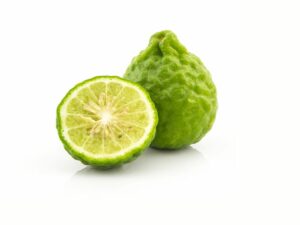
Synthetic ingredients have transformed the fragrance industry by offering a palette of scents that create entirely new aromas. These ingredients can enhance the longevity and complexity of fragrances, providing consistency and innovative scents that are not found in nature. Here are the top synthetic ingredients that are integral to modern perfumery:
Aldehydes are organic compounds that can impart a variety of scents from zesty citrus notes to rich and zesty citrus. Aldehydes can amplify floral notes, add freshness to a scent, and create an overall impression of cleanliness and crispness. They are the unsung heroes that give fragrances their unforgettable opening notes. Their versatility makes them the key to the creation of contemporary perfumes offering sophistication.
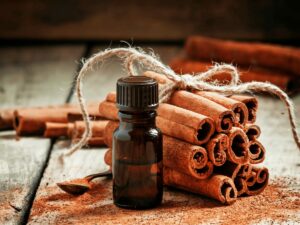
Musk is used to replicate the natural musky scent found in animal glands. Synthetic musks are favored for their skin-friendly properties and sustainability, avoiding the ethical concerns associated with natural musk extraction. For example, synthetic musk can be used to create the base note in a luxury perfume, providing a long-lasting scent that enhances the fragrance’s complexity without harming wildlife.

Esters are chemical compounds that can be engineered to produce a wide array of fruity and floral aromas. It can replicate sweet scent of apples and bananas to the lushness of roses and violets. They are created through the reaction of an acid to alcohol. Their ability to mimic natural fragrances makes them essential to Nako Cosmetic in crafting perfumes that are both enchanting and enduring.
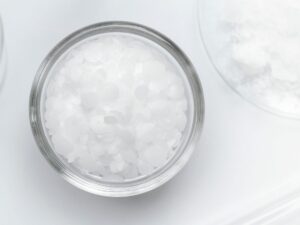
Looking for more diverse product options? Browse through our handpicked selections:
Still haven’t found what you’re looking for? Don’t hesitate to contact us. We’re available around the clock to assist you.
Exploring the world of fragrance through these 5 key ingredients reveals the artistry and science behind scent creation. This guide offers valuable insights into how each component contributes to the allure and identity of a perfume.
For businesses seeking to delve deeper into the fragrance ingredients and its applications, Nako Cosmetic is your trusted partner. Contact us today for a detailed discussion with your inquiries.
Own Your Private Label Cosmetic Line Is No Longer Difficult Here!
Don't let questions and needs hold you back. Reach out to us today.
How to Start Your Beauty Business?